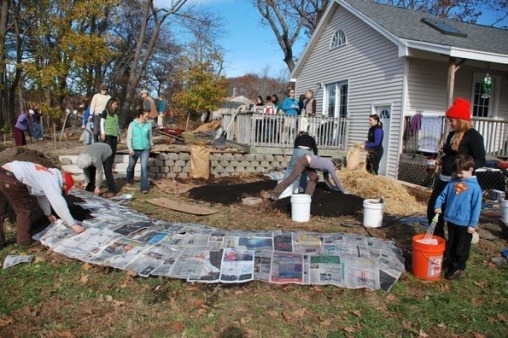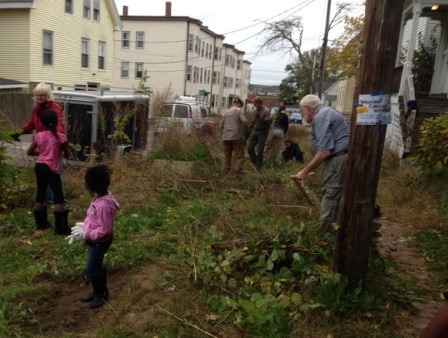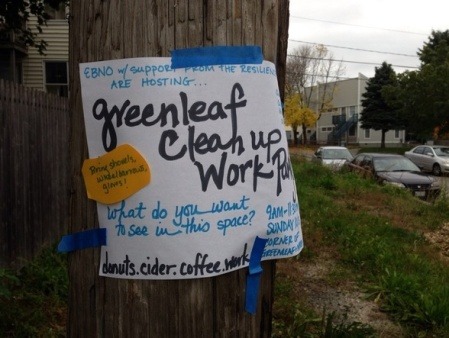Portland Maine Permaculture received a grant in 2011 to organize and carry out two (2) one-day "permablitzes" on various residential sites in and around Portland Maine in 2012 as a catalyst for more in future. A permablitz is a large volunteer work party that essentially performs a "make-over" on the selected property based on a previously conceived permaculture design. The "ethos" of the project taps into our barn-raising heritage of mutual aid for positive outcomes and moves people out of the isolation of having to address their environmental and economic concerns on their own. The design goals for any one permablitz would include minimizing reliance on fossil fuels, producing as much food as possible on-site consistent with the family's abilities, minimize waste and other negative outputs, harness water and energy already landing on the site (sun, wind, etc.) and create a demonstration home that others can visit and become inspired by. On the day of the permablitz, volunteers break into work groups with team leaders to learn about their part of the installation; in this way permablitzes are very educational for those who attend.
The Resilience Hub
Our Purpose
To help build resilience at personal, household, and community levels in the face of food and environmental insecurity. The realities of climate change, social injustice, and economic volatility justify our community-level approach to sustainable growing initiatives that respectfully steward the land while creating a thriving and abundant local culture. We do this by actively cultivating sustainability- and resilience-building projects (like the Resilience Hub Resource Exchange Network, Mt. Joy Community Orchard, Permaculture Work Parties, Maine Tool Library, Southern Maine Seed and Scion Swap, and other initiatives) and by hosting member- and partner-proposed projects that are consistent with our mission. Much of our work is predicated on permaculture, a design system and set of techniques for creating resilient human habitats and healthy ecosystems. Both permaculture principles and the Resilience Hub’s organizational structure are modeled on natural patterns and cover a wide range of domains including food production, energy, water, wellness, community, culture, and economics.


